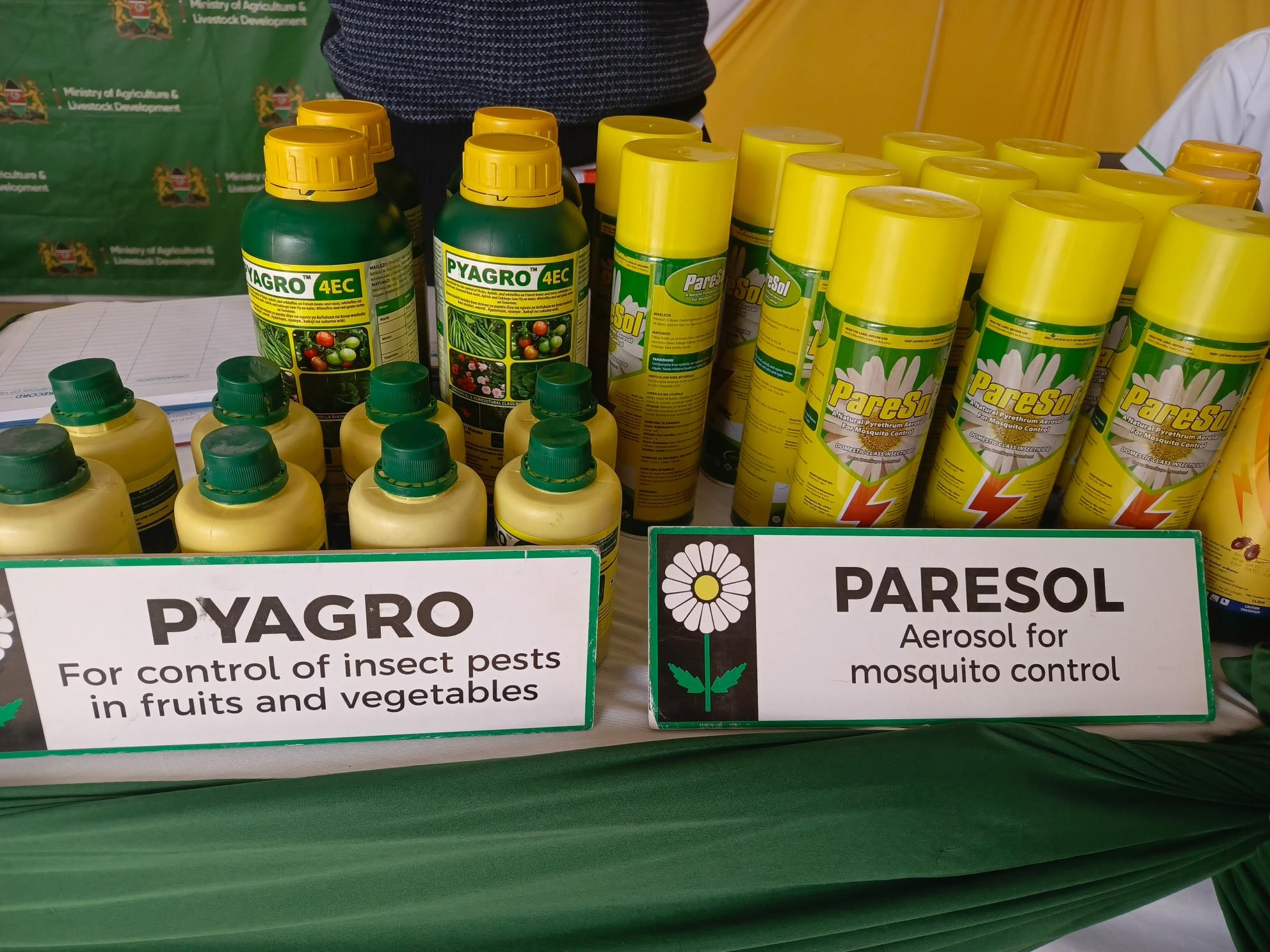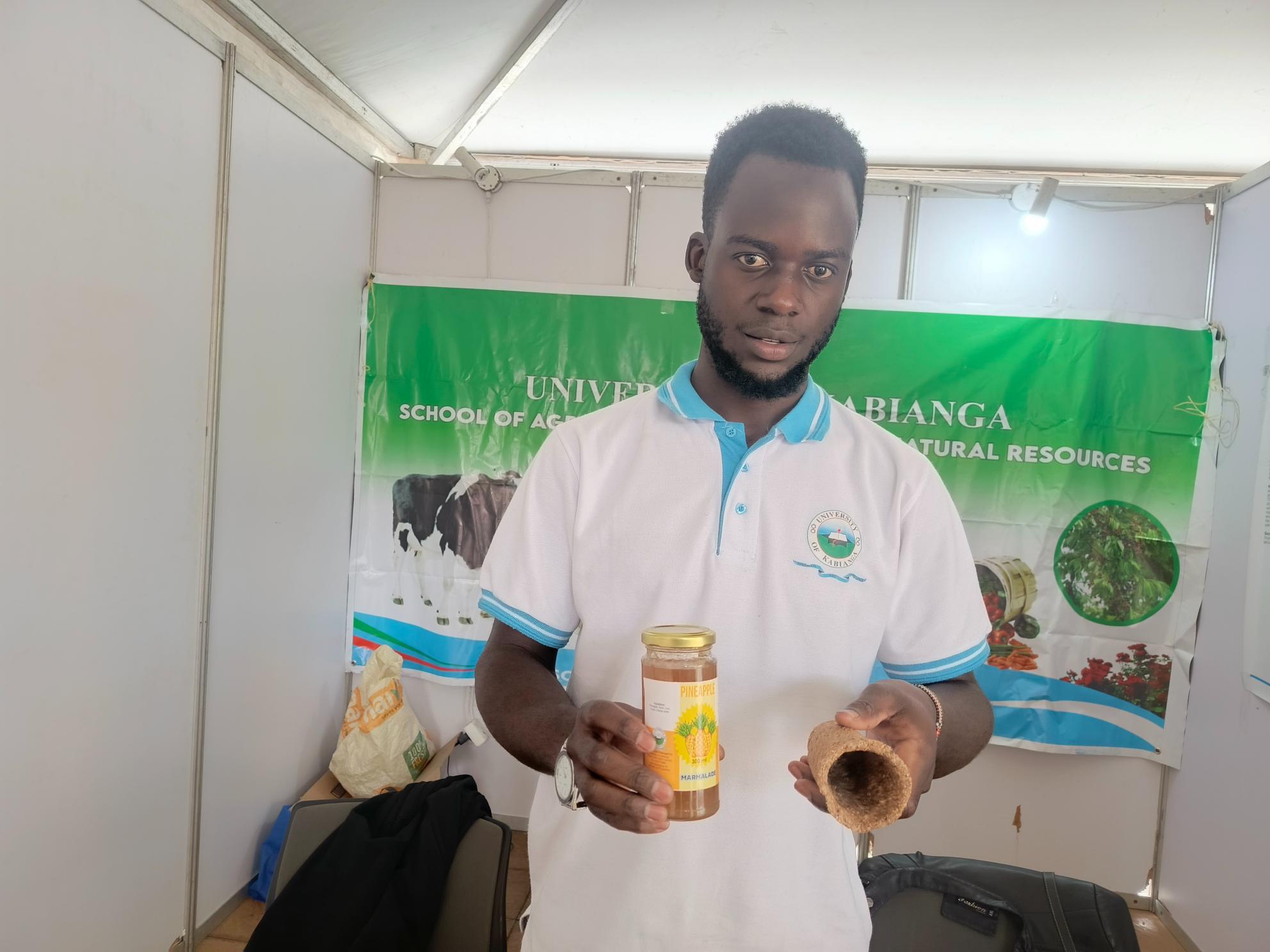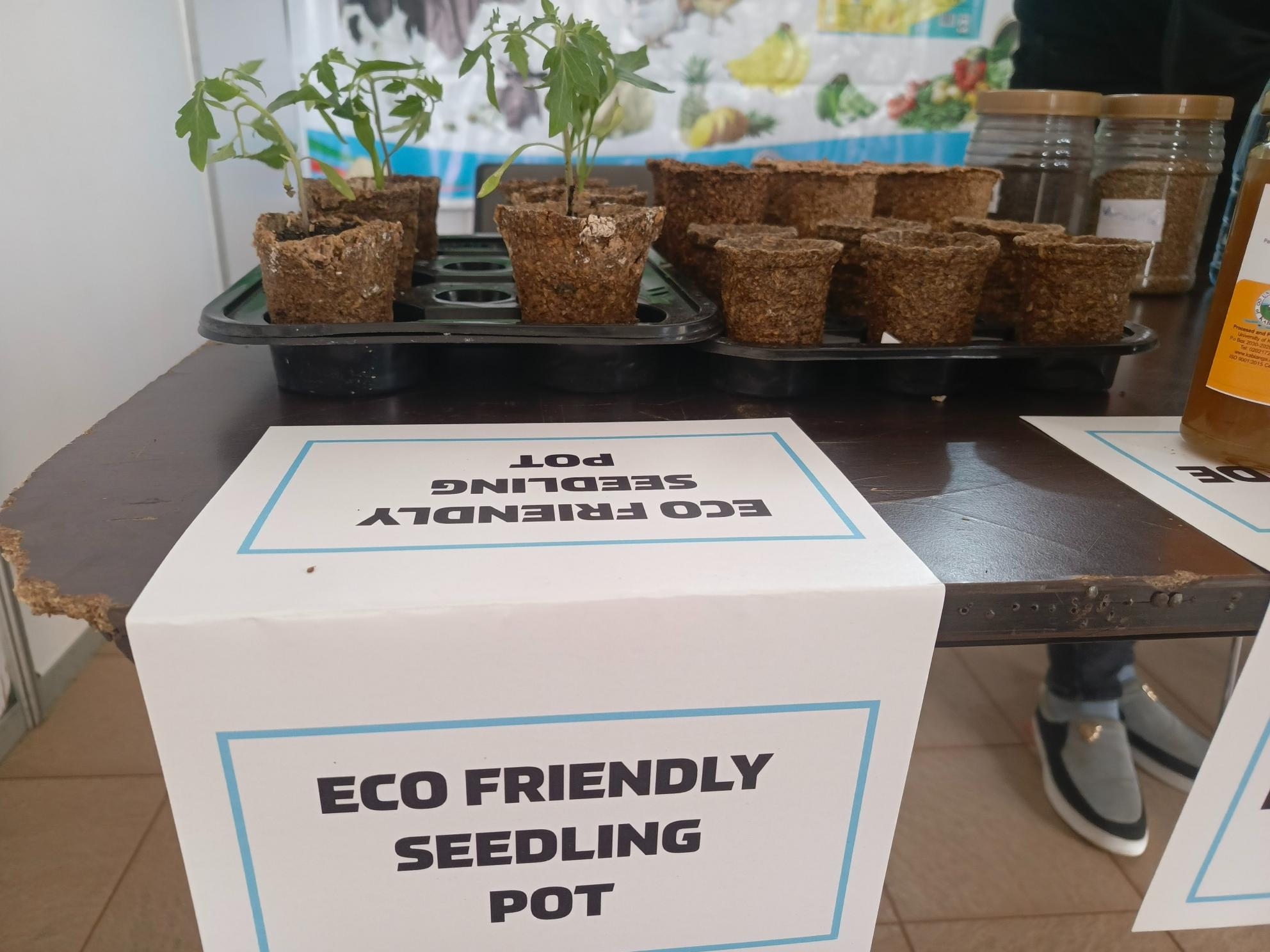
 Maxwel Oyoo, a fourth-year student at the University of
Kabianga’s Department of Agricultural Biosystems and Economics shows eco-friendly
products such as biodegradable seedling pots, marmalade, jam and juice made from
pineapple waste the 5th National Agribusiness Summit at the KICC /AGATHA NGOTHO.
Maxwel Oyoo, a fourth-year student at the University of
Kabianga’s Department of Agricultural Biosystems and Economics shows eco-friendly
products such as biodegradable seedling pots, marmalade, jam and juice made from
pineapple waste the 5th National Agribusiness Summit at the KICC /AGATHA NGOTHO. Eco-friendly seedling pot made from pineapple waste/AGATHA NGOTHO.
Eco-friendly seedling pot made from pineapple waste/AGATHA NGOTHO. Unlike most people who discard pineapple peels,
Maxwel Oyoo sees them as a valuable resource. The University of Kabianga
student has discovered innovative ways to repurpose these peels.
“We do value addition on pineapples to make sure nothing goes to
waste,” Oyoo says.
“From the fruit, we make marmalade, jam and juices, and even use
the peels to make organic manure and biodegradable seedling pots.”
Oyoo, who was showcasing his innovations at the 5th National
Agribusiness Summit at the KICC said the idea was born out of a desire to
tackle waste and pollution caused by non-degradable materials such as plastic
seedling containers.
“I care about the environment,” he says. “Polythene seedling
bags are harmful because they litter farms and take long to decompose. I wanted
to find an alternative that is friendly and adds value to the environment.”
The process starts with collection of pineapple peels from local
markets and juice vendors, drying them and grinding them into fine particles.
The powder is then mixed with cornstarch, which acts as a natural binder.
“Cornstarch is like glue,” Oyoo says. “We boil it with water to
make a sticky paste, then mix it with the ground pineapple peels. Once we get a
clay soil-like texture, we mould it into pots using simple containers.”
The pots are then left to dry in the sun and once ready, are used
to grow seedlings such as tomatoes, cabbages and other vegetables.
“The beauty of these pots is that they are completely
biodegradable,” Oyoo says. “When you transplant your seedlings, you plant them
directly with the pot. After about 21 days, the pot decomposes and becomes
organic manure, enriching the soil.”
He says the innovation came after several trials and failures
and the first few attempts broke when drying. It took him about three weeks of
testing and adjusting the starch-to-peel ratio before he finally got the right
consistency.
They are currently at the early stages of developing the
innovative pots before they can hit the market. He has however set potential
prices of Sh50 for the small pots and Sh100 for larger ones.
Besides the biodegradable pots, Oyoo’s team has also ventured
into producing marmalade, jam and pineapple juice, all from different parts of
the fruit to ensure nothing goes to waste.
“We use the soft part of the pineapple to make marmalade,” he
says, displaying neatly packaged jars labeled ‘Pineapple Marmalade’. “The
harder, fibrous part is blended, sieved, and used to make jam. We even make a
sugar-free version for health-conscious consumers by adding lemon instead,” he
explains.
The products are currently being sold at the university’s
innovation centre at Sh100 for marmalade and Sh200 for jam. Oyoo hopes to
expand the business after graduation.
“This is my final-year project, but I see it growing into a real
business,” he says. “We already have people showing interest, especially
because our products are natural and environmentally friendly.”
Oyoo says he got the idea from social media while looking for an
agricultural project for his final year.
“I saw a video on YouTube about biodegradable pots made from
fruit waste,” he says. “I thought, ‘Why not try it with pineapples since we
have plenty here in Kenya?’ I discussed it with my lecturer and she encouraged
me to refine it into a practical project.”
Now, with support from his classmates and lecturers, the project
is gaining recognition at exhibitions and conferences. Oyoo’s innovation was
recently showcased at the university’s agribusiness innovation fair.
“This exhibition is our first public showcase,” he says with
excitement. “It feels great to see people appreciate our work.”
Oyoo, who also practices small-scale farming at home in Homa Bay
County, believes the youth can play a major role in reducing agricultural waste
and protecting the environment.
“We throw away so much that could be turned into something
useful,” he says. “If more young people embraced agribusiness and innovation,
we’d create jobs, reduce waste and conserve the environment at the same time.”
He hopes to soon commercialise his biodegradable pots under a
brand name and expand into large-scale production.
“This is just the beginning,” he says confidently. “In the future, I want to establish a company that processes fruit waste into eco-friendly products. Nothing from the pineapple should ever go to waste.”
















